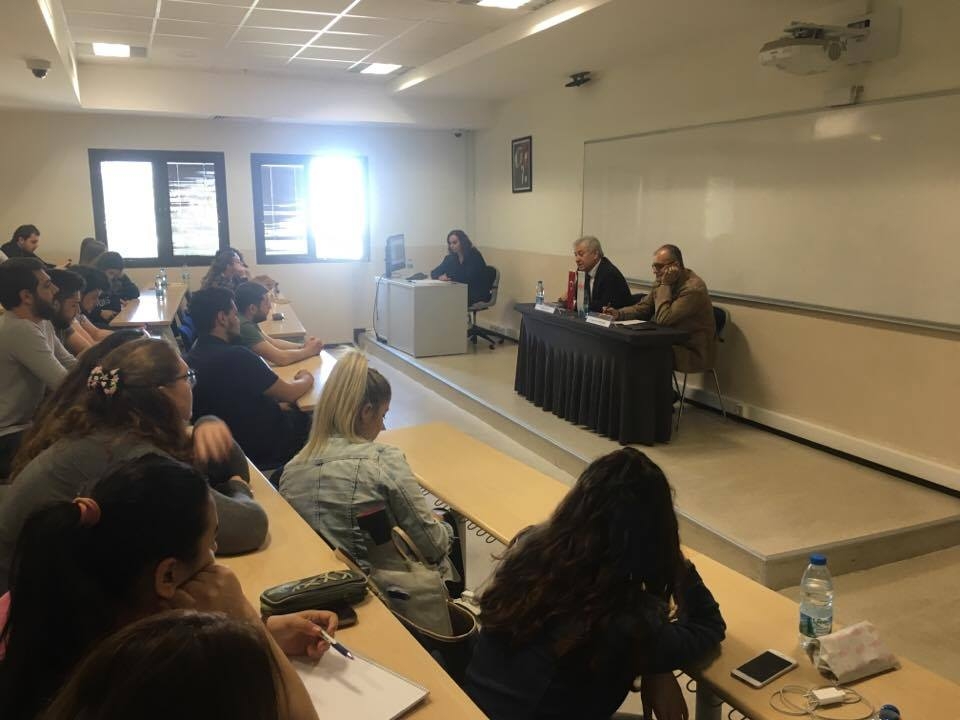
...
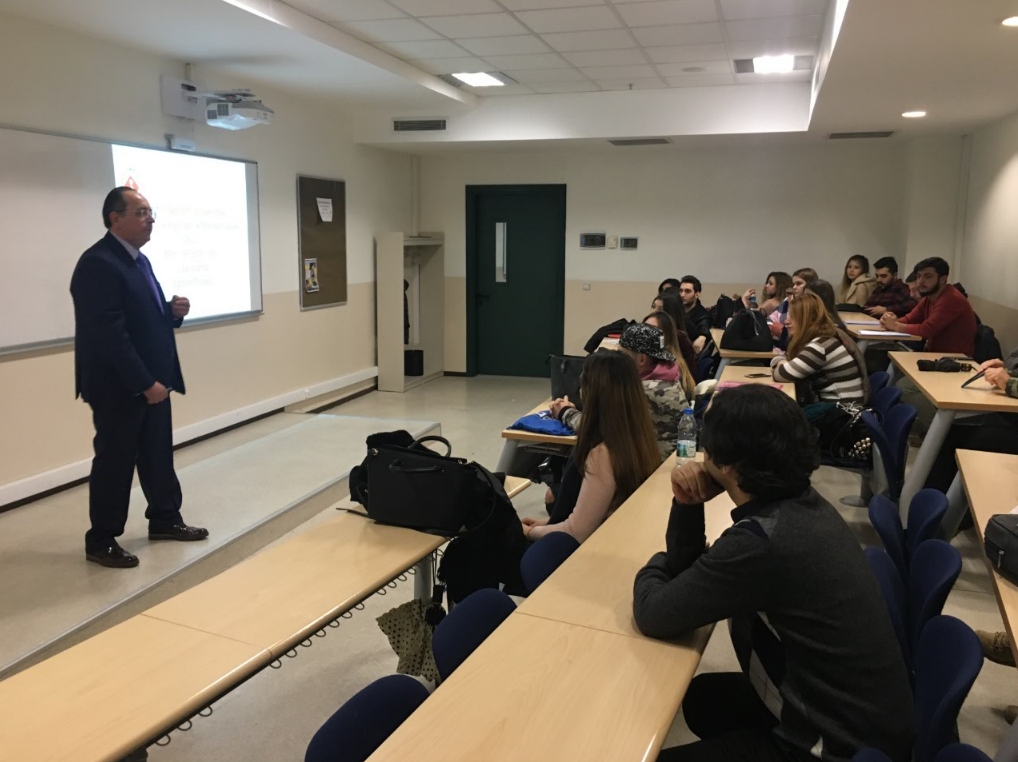
...
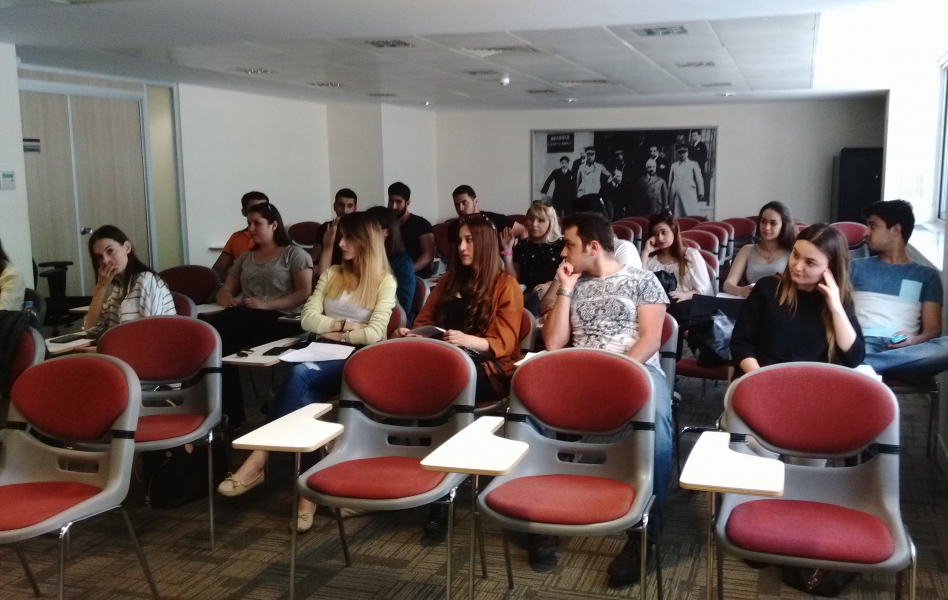
...
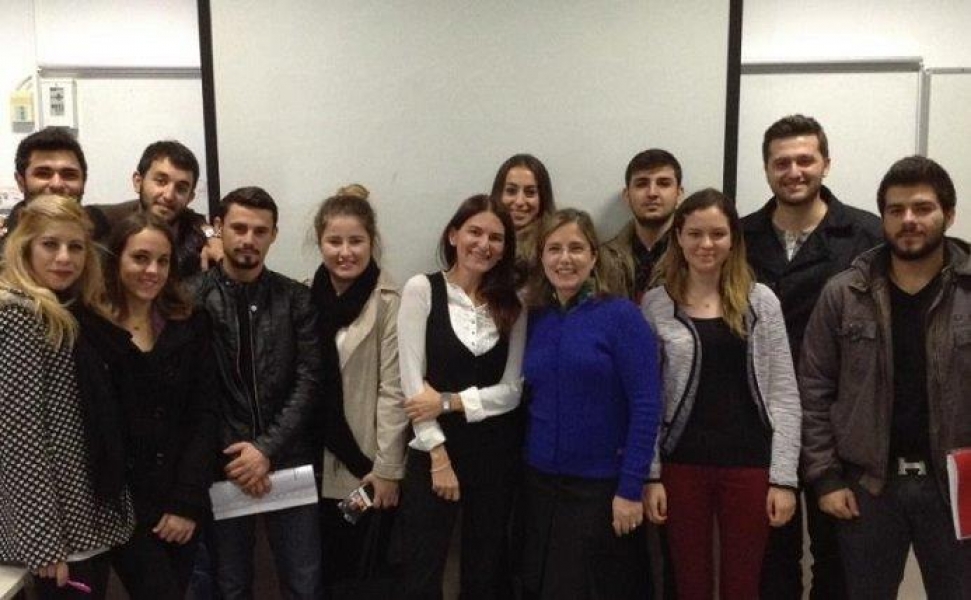
...
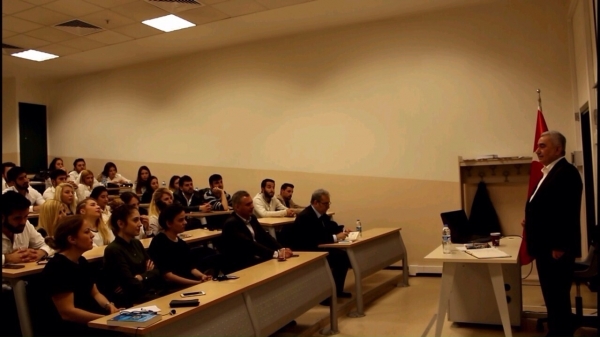
...

...
| Course Name |
Principles of Atatürk and History of Revolution
|
|
Code
|
Semester
|
Theory
(hour/week) |
Application/Lab
(hour/week) |
Local Credits
|
ECTS
|
|
TRH 100
|
Fall
|
4
|
0
|
4
|
4
|
| Prerequisites |
None
|
|||||
| Course Language |
Turkish
|
|||||
| Course Type |
Required
|
|||||
| Course Level |
-
|
|||||
| Mode of Delivery | - | |||||
| Teaching Methods and Techniques of the Course | DiscussionQ&ALecture / Presentation | |||||
| National Occupation Classification | - | |||||
| Course Coordinator | ||||||
| Course Lecturer(s) | ||||||
| Assistant(s) | - | |||||
| Course Objectives | The course provides a general approach for analysis of the foundation of the Republic of Turkey under the leadership of Mustafa Kemal Atatürk. Emphasizing military, political, sociocultural and economic developments, the course seeks to compare the sectoral reforms of the Ottoman State during the period of the decline of the Empire with the farreaching, radical and revolutionary attempts made by Atatürk which paved the way for the establishment of modern and civilized institutions in Turkey between 1920 and 1938. |
| Learning Outcomes |
The students who succeeded in this course;
|
| Course Description | This course provides a general information of the events from the end of the 19. century until the end of the Turkish War of Independence and the signing of the Treaty of Lausanne in 1923 and the following period until 1990’s. |
| Related Sustainable Development Goals |
|
|
Core Courses | |
| Major Area Courses | ||
| Supportive Courses | ||
| Media and Management Skills Courses | ||
| Transferable Skill Courses |
| Week | Subjects | Related Preparation |
| 1 | Course aim and related words | Bernard Lewis, Modern Türkiye’nin Doğuşu, s: 31-57 |
| 2 | The Reasons of the Collapse of Ottoman State Ottoman Reforms | Bernard Lewis, Modern Türkiye’nin Doğuşu, s:104-179 |
| 3 | The State of the Ottoman Empire in the Early 20th Century | Türkiye Cumhuriyeti Tarihi, Editör: Elçin Yılmaz, İzmir Ekonomi Üniversitesi Yayınları, 2024, s.17-43 |
| 4 | World War I and the Fall of the Ottoman Empire | Türkiye Cumhuriyeti Tarihi, Editör: Elçin Yılmaz, İzmir Ekonomi Üniversitesi Yayınları, 2024, s. 86-119 |
| 5 | Ottoman State after Mudros Armistice | Türkiye Cumhuriyeti Tarihi, Editör: Elçin Yılmaz, İzmir Ekonomi Üniversitesi Yayınları, 2024, s.127-168 |
| 6 | Preparation for The National Struggle | Mustafa Kemal Atatürk, Nutuk, 100-150 |
| 7 | Opening and Works of the Turkish Grand National Assembly | Türkiye Cumhuriyeti Tarihi, Editör: Elçin Yılmaz, İzmir Ekonomi Üniversitesi Yayınları, 2024, s.183-196 |
| 8 | Midterm Exam | |
| 9 | Lausenne Peace Agreement and Political Reforms | Türkiye Cumhuriyeti Tarihi, Editör: Elçin Yılmaz, İzmir Ekonomi Üniversitesi Yayınları, 2024, s.241-245. |
| 10 | Turkish Revolutions In Ataturk Era and Principles Of Ataturk | Türkiye Cumhuriyeti Tarihi, Editör: Elçin Yılmaz, İzmir Ekonomi Üniversitesi Yayınları, 2024, s.232-259 |
| 11 | Turkish Revolutions In Ataturk Era and Principles Of Ataturk | Refik Turan, Mustafa Sarhan, Atatürk İlkeleri ve İnkılap Tarihi, s.227-248 |
| 12 | Foreign Policy of Atatürk Period (1923-1938) | Bernard Lewis, Modern Türkiye’nin Doğuşu, s:393-437 |
| 13 | Turkish Political Life in the Period 1939-1960 | Bernard Lewis, Modern Türkiye’nin Doğuşu, s:393-437 |
| 14 | Turkish Political Life in the Period 1939-1960 | Türkiye Cumhuriyeti Tarihi, Editör: Elçin Yılmaz, İzmir Ekonomi Üniversitesi Yayınları, 2024, s.332-385 |
| 15 | Review of the Semester | |
| 16 | Review of the Semester |
| Course Notes/Textbooks | Hasan Mert, Nuri Karakaş, vd., Türkiye Cumhuriyeti Tarihi, Editör: Elçin Yılmaz, İzmir Ekonomi Üniversitesi Yayınları, 2024. |
| Suggested Readings/Materials | Mustafa Kemal Atatürk, Nutuk, Atatürk Araştırma Merkezi, Ankara 2005 Bernard Lewis, Modern Türkiye’nin Doğuşu, Ankara, 2017 Lord Kinross, Atatürk, İstanbul, 1981 Mahmut Goloğlu, Devrimler ve Tepkileri, İstanbul, 2009 |
| Semester Activities | Number | Weigthing |
| Participation | ||
| Laboratory / Application | ||
| Field Work | ||
| Quizzes / Studio Critiques |
1
|
20
|
| Portfolio | ||
| Homework / Assignments |
-
|
|
| Presentation / Jury | ||
| Project | ||
| Seminar / Workshop | ||
| Oral Exams | ||
| Midterm |
1
|
35
|
| Final Exam |
1
|
45
|
| Total |
| Weighting of Semester Activities on the Final Grade |
3
|
55
|
| Weighting of End-of-Semester Activities on the Final Grade |
1
|
45
|
| Total |
| Semester Activities | Number | Duration (Hours) | Workload |
|---|---|---|---|
| Theoretical Course Hours (Including exam week: 16 x total hours) |
16
|
4
|
64
|
| Laboratory / Application Hours (Including exam week: '.16.' x total hours) |
16
|
0
|
|
| Study Hours Out of Class |
14
|
2
|
28
|
| Field Work |
0
|
||
| Quizzes / Studio Critiques |
1
|
2
|
2
|
| Portfolio |
0
|
||
| Homework / Assignments |
-
|
0
|
|
| Presentation / Jury |
0
|
||
| Project |
0
|
||
| Seminar / Workshop |
0
|
||
| Oral Exam |
0
|
||
| Midterms |
1
|
12
|
12
|
| Final Exam |
1
|
16
|
16
|
| Total |
122
|
|
#
|
Program Competencies/Outcomes |
* Contribution Level
|
|||||
|
1
|
2
|
3
|
4
|
5
|
|||
| 1 |
To be able to develop themselves in the subjects of obtaining the financial resources necessary for the activities of individuals and enterprises under the most favorable conditions and examining the use of the accumulated funds. |
-
|
-
|
-
|
-
|
-
|
|
| 2 |
To be able to discuss the role, importance and functions of the institutions providing banking and insurance services in the economic system |
-
|
-
|
-
|
-
|
-
|
|
| 3 |
To be able to evaluate the organizational structure, business processes, and service portfolios of banks, insurance companies, and other financial institutions operating in the sector. |
-
|
-
|
-
|
-
|
-
|
|
| 4 |
To be able to develop skills in identifying, measuring, and assessing financial and operational risks, and to acquire fundamental knowledge to understand and apply insurance products against these risks. |
-
|
-
|
-
|
-
|
-
|
|
| 5 |
To be able to recognize financial products offered in the banking and insurance sector, and to gain skills in effective marketing and sales, as well as managing long-term customer relationships. |
-
|
-
|
-
|
-
|
-
|
|
| 6 |
To be able to possess basic legal knowledge and closely monitor legislative changes relevant to the field. |
-
|
-
|
-
|
-
|
-
|
|
| 7 |
To be able to possess basic knowledge of accounting and analyze financial statements to evaluate the financial status of businesses. |
-
|
-
|
-
|
-
|
-
|
|
| 8 |
To be able to follow technological innovations in the financial sector and acquire knowledge about the role of blockchain and artificial intelligence applications in the industry. |
-
|
-
|
-
|
-
|
-
|
|
| 9 |
To be able to make decisions based on the principles of professional ethics, accountability and responsibility |
-
|
-
|
-
|
-
|
-
|
|
| 10 |
To be able to follow international financial markets and global economic indicators by using English at least at the A2 level of the "European Language Portfolio" |
-
|
-
|
-
|
-
|
-
|
|
| 11 |
To be able to analyze and interpret banking and insurance data, and to develop data-driven strategies for financial decision-making. |
-
|
-
|
-
|
-
|
-
|
|
| 12 |
To be able to acquire knowledge about the components of national and international systems and the implementation of sector policies. |
-
|
-
|
-
|
-
|
-
|
|
| 13 |
To be able to direct his/her education to a further level of education |
-
|
-
|
-
|
-
|
-
|
|
*1 Lowest, 2 Low, 3 Average, 4 High, 5 Highest

...

...

...

...

...

...

As Izmir University of Economics transforms into a world-class university, it also raises successful young people with global competence.
More..Izmir University of Economics produces qualified knowledge and competent technologies.
More..Izmir University of Economics sees producing social benefit as its reason for existence.
More..